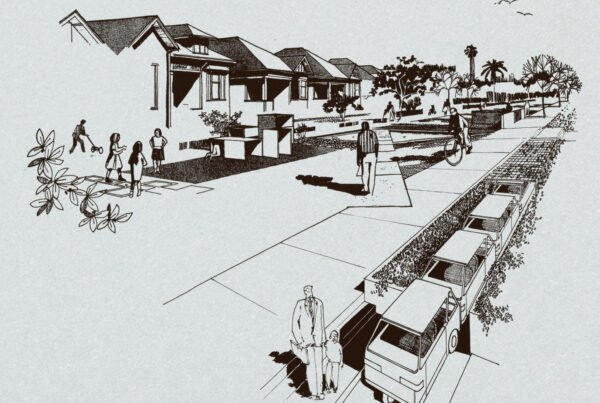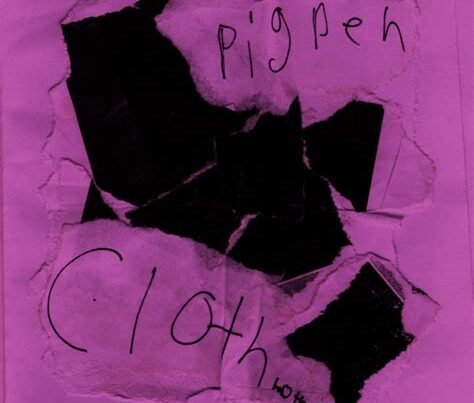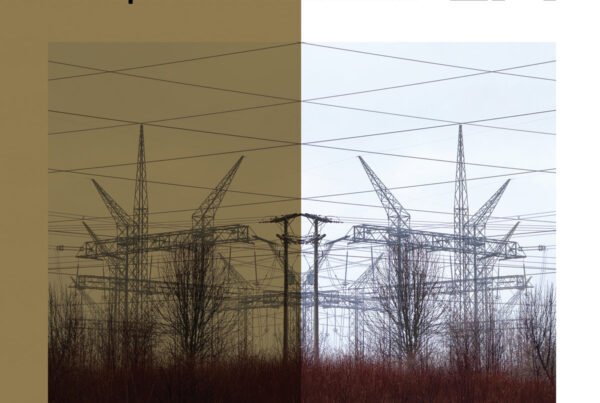Coheed and Cambria mark their twentieth year as a band by releasing their tenth album, keeping us guessing all the way to the end as to which direction they’ll go, a mostly good thing.
Release date: June 24, 2022 | Roadrunner Records | Facebook | Twitter | Instagram | Stream/Purchase
Getting two megafans of a band to review their latest work generally can go one of two ways: blind yesmanning and cosigning of even the most average or controversial output, or jaded and here by obligation. Luckily for y’all, this review is neither as both Landon and I are pretty firmly in the middle, looking to provide our veteran input on Coheed and Cambria‘s newest album without it coming close to either a hatefest or rose-colored parade. Anyway, isn’t Claudio Sanchez’s hair just immaculate? And that voice – WOO! #zaddy
How is Vaxis? Who is Vaxis? When is Vaxis? The answers to all of this and more you probably didn’t need in our latest conversational review.
Landon: So I know you and I both love Coheed and Cambria. If you as readers want a detailed backgrounder on our respective affinities for the progressive/emo rock legends, you can read our review of the band’s last record, or David’s two-part breakdown of Coheed’s catalog (here and here). But if you don’t want to read all that, it suffices to say that two EIN editors/writers (me included) have Keywork tattoos. If you want to add anything about your love for the band David, go ahead. Otherwise, I’d be curious what your hopes for the album were. I have to say, personally, I was a bit nervous. I was pleasantly surprised by Vaxis I, but the singles leading up to Vaxis II seemed to be a pretty mixed bag of mid-tier but fun, catchy tracks. There wasn’t anything hinting at the more towering prog epics of Vaxis I’s “The Dark Sentencer” or the gritty edges of “The Gutter”. Overall, the singles suggested that Vaxis II may be the most polished, poppy release of the band’s career, and a move away from some of the bigger progressive moments of the past albums that I loved so much. What were you thinking going into Vaxis II?
David: I bought the hyper deluxe edition big boy book of The Color Before The Sun that has my name in it – that’s probably my biggest claim to fandom for Coheed, but I’ve loved them for almost twenty years now. Yes, my knees hurt. No, I don’t own a house.
My hopes? Honestly, to see epic, proggy Coheed back in full force. We haven’t seen them since The Afterman and they are by far my favorite form of the band, but… it’s been years. They are clearly in a different mindset the past couple projects overall, despite expanding on their heavily involved space opera concept still (TCBTS notwithstanding). Part of my engaging with Coheed ever since Vaxis I – which I liked at first, but haven’t felt compelled to return to much since – is keeping expectations in check, and letting them do what they wanna do. If I don’t like it, I still have their old albums to go to. It’s wildly selfish and unreasonable for them to rehash their old stuff or expect them to make an album for me. Tons of other fans seem to love what they do regardless and I think that’s great. I will always like them and appreciate their success, even if it’s from the distant past.
Still, I was excited to dig into Vaxis II no matter what and I’m ultimately glad I did.
L: I resonate with what you’re saying. There’s definitely been a tonal (and to my ears, move towards more polished production) shift since Afterman came out that has marked a fair amount of deviation from what I loved about Coheed when I first encountered them. That being said, I still think they’re a really solid band and incredibly strong songwriters. However, the art they’re pursuing is just different now than what I first experienced with them. And that’s not a bad thing – who wants to see a band recycle the same material for as many years and albums as Coheed has been going for?
Frankly, I admire how much they expand their sound. They do a lot of things as a band, and not all as well as others, but they never play it safe. Not sure how far you are into the record, but they go places with autotune and dancepop that is commensurate with some of Claudio’s other stuff, but certainly new for Coheed. The huge fuzz/octave riff on “Shoulders” is also unique and hard hitting. That being said, once we get to the final act of the record, we do get some classic Coheed with some new details that I enjoy a lot. But maybe I’m jumping ahead. Any first impressions?
D: Yeah… this album is weirdly both all over the place and almost painfully consistent. Not necessarily safe like you said, but, for instance, track 2 to 9 are all in the three-minute window with very little variation outside of some stylistic choices. That said, it’s all remarkably solid. I’m working on my third listen as I type this and I haven’t been fatigued or turned away by Coheed’s approach. First impression? This is better than Vaxis I to me. Vaxis I did a similar thing especially with song lengths, but instead of three minutes, a lion’s share were in the five-minute range which really dragged the album down by the end. Even if the individual songs were good, they were just so long back to back. Vaxis II feels much less laborious AND good, so it’s already better for that reason alone. I feel like the band settled into their more straightforward rock, kind of poppy approach to their sound they’ve been doing since TCBTS with good success here.
L: I would definitely agree with that assessment. While, on the whole, I liked Vaxis I, it was a bit bloated both in terms of song length and overall runtime (which, I will admit, is something Coheed has always struggled with to some extent). Comparatively, Vaxis II is a lot more concise in terms of arrangement and pacing. Even though I would’ve appreciated a bit more variation in terms of style and song lengths on the first two thirds of the album, we still get those epics at the end (instead of the beginning, like usual), so I can’t complain too much. Also, while Vaxis I had some songs that were a bit of a slog to get through, I don’t yet feel that way about anything on this new release.
Any standout tracks for you?
D: I’m very happy to say that about half the album stands out for me. “Shoulders” still goes hard as hell. Very energetic, love how much energy the band has on it. The chorus softens it a bit, but I get it. “Beautiful Losers” is a great post-intro track that offers a bit more calm of a start than we’re used to. “A Disappearing Act” is pretty firmly a dance track which is absolutely wild to me, but it mostly works. I really like “Bad Man” because it’s one of those classically dark Coheed tracks where the theme and lyrics kind of carry it in that sense. Claudio also sounds like The Weeknd on the verses, complete with light autotune.
The last three tracks feel like they could have been a suite. Not only are “Ladders of Supremacy”, “Rise, Naianasha (Cut The Cord)”, and “Window of the Waking Mind” the longest, most structurally interesting tracks on here by far, but one leads into another very well and it’s where I can parse out a better chunk of the story that album tells. Very good ending to Vaxis II. What are yours?
L: Honestly, I would agree that most songs are pretty strong – “Blood” and “Our Love” fall a bit flat for me, but that’s not a bad ratio for twelve full tracks. I was pleasantly surprised by the way that “Beautiful Losers” follows the reprise/introduction. It captures a lot of what I liked about the melodic, matured pop-punk anthems from The Color Before the Sun. I also have to admit that, while I felt lukewarm about some of the singles, they fell into place in the context of the album (which is often how I feel about Coheed’s singles) – “Shoulders” still being a highlight of the singles for me.
“A Disappearing Act” could’ve been on Edmonton (where I’m from) radio in the late 2000s, honestly making me think of our breakout act Stereos, as well as Cobra Starship, etc. It’s radio/dance/pop/rock, but it does it well. I could see it alienating some listeners, but it won’t be because it’s a bad Coheed song, just a different one.
As predictable as it may be, I do think the final few songs on the album are still my favourite part of the album. Sure, they’re more of the classic progressive side of Coheed, but I wanted that, and I got it. “Ladders of Supremacy” opens with those intermingling guitar lines and pounding drums that scratch that classic Coheed itch, but with some interesting and theatrical choices as the song progresses. The incorporation of strings and synths into the song’s verses was also pretty cool, and I really liked the moody, epic hook. You’re right about how it flows into “Rise, Nainasha”. The title track starts off unexpectedly, but gets dark and massive in a way that I really enjoy as it progresses.
In retrospect, I feel like the past couple paragraphs say what is a pretty accurate reflection on Vaxis II: it’s an album that expands my conception of what Coheed and Cambria can be, while still having just enough of old school Coheed to satisfy long-time fans (of course, some may want more, but we have all their previous albums for that). It might not quite hit the high points that their early catalog does, but I also think it’s not too productive to compare the releases of bands with legendary output like that. If I have to, and I’m sure people want me to, I’d put this at mid-tier in Coheed’s discography, placing it just above Vaxis I.
D: I feel you on “Blood” and “Our Love”, even though the latter is as close as we get to a Coheed ballad on here. I’ll also throw “Love Murder One” in there – wasn’t a huge fan.
Nerd time: it’s funny we’re talking a good amount about Coheed’s past and their lasting legacy with their old work when Vaxis II, thematically speaking, is also about legacy and specifically progeny. After all, Vaxis is a character, the son of this arc’s protagonists, Creature and Sister Spider. We learn a fair amount about those two back on Vaxis I, but we don’t know a whole lot about their son who’s the namesake of this particular story. All Claudio’s said to my knowledge is that Vaxis’ destiny is to be a leader for the new universe left behind after the literal planet-busting events of the original story ending with Good Apollo, Vol 2: No World For Tomorrow.
This is interesting to me because we can now very clearly see these three arcs (so far) in the bigger picture – The Afterman followed Sirius Amory as he discovered or “built” the Keywork and the vast universe within it, Coheed’s first five albums covered The Amory Wars themselves which saw Claudio Kilgannon destroy much of that universe and he’s the legacy of the characters Coheed and Cambria, and now this Vaxis arc seeks to salvage and rebuild what can be to forge a new era. That’s an interesting-ass saga right there and I just want to see how this particular story wraps up because it all kind of feels a bit meta at this point as the band moves into these different sounds and eras themselves.
L: I’ll have to admit that, as fascinating as I find Coheed’s lore, I do a really poor job of actually following it. That said, I really like the way that Claudio puts an emotional throughline in the music by tying it to his personal experiences. I don’t think it’s any accident that the Vaxis story ties around a child’s relationship to his parents and that Claudio became a father in (relatively) recent years. I think that Claudio telling a story, albeit a galaxy-spanning space opera, based in his lived experience helps make these narratives compelling, grounded, and accessible even if you don’t want to dive into the lore.
Really, that’s a huge part of what I love about Coheed – their ability to make ambitious musical and lyrical concepts real, emotional, and resonant. Even if Vaxis II will not be my favourite Coheed release of all time, the band has not lost their ability to make music in a way that I emotionally connect with. All things considered, this album is a solid release that shows a band willing to continue innovating while still maintaining their core attributes, which is pretty impressive for an act this far along in their career.
D: Agreed to all that. Makes sense that Claudio would put his own kid Atlas on the opening track to sing as well. Maybe he’s fixing to help his son build a legacy of his own, just as Vaxis will have his? Time will tell.
At any rate, yes, very solid album, just edging out Vaxis I and TCBTS for me which are my least favorites. Coheed have never written a bad album and I don’t think they have it in them to do that. A great place for a rock band to be as they pass their 20-year anniversary of releasing work. I’ll always be a fan.






